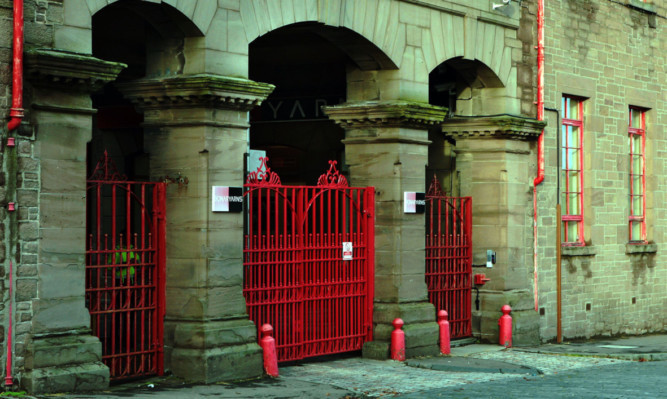Low & Bonar’s shares fell yesterday after it warned that its pre-tax profit would be similar to last year.
The strength of sterling took £2.4 million off overseas earnings, and sales growth slowed in the business in the second half of the year.
The former Dundee jute company, which is now headquartered in London and manufacturing performance materials for a range of customers, reported sales up 7.2% in the year to November.
The increase would have been 5.5% excluding Texiplast, the Slovakian producer of high-strength geosynthetic products for the civil engineering market which it bought in the second half of the previous year.
Sales in the second half of the last financial year were mixed across the business.
Overall like-for-like sales in the second half rose 2.1%, compared with 2.8% for the whole year.
Flooring operations reported second-half sales growth of 11.6%, compared with 6.8% for the full year, but civil engineering sales were down 5.1% compared with a 0.9% decline for the year.
Building products also suffered in the second half, with sales down 2.3% compared with growth of 4.4% for the full year.
Texiplast sales were £8.8m for the full year, including £5.2m in the second half.
Sales in technical coated fabrics were up 6% on the year in the second half, compared with 8.7% growth in the full year.
Yarns sales were up 1.5% in the second half compared with 14.0% growth for the full year.
Bonar Yarns announced in October it was transferring a major part of its operation from Dundee to Abu Dhabi.
Sixty-eight jobs were put at risk at the Caldrum Works in St Salvador Street, and the company entered into a consultation process with all 127 staff.
The move would not end production at the plant, which makes carpet backing and artificial turf for the sports and landscaping industries, but a number of lines would be moved to Abu Dhabi.
A spokesperson for Low & Bonar said yesterday that the trading update did not affect the announcement for Dundee in October, and added: “The yarns market is highly competitive and the restructuring of the workforce is, sadly, necessary to ensure long-term viability and competitiveness.”
The company expects Bonar’s civil engineering market to remain subdued into the first half of next year, and in building products there were strong sales in the US but weak demand in Europe.
Low & Bonar’s net debt stood at £88m at the end of last month.
Pre-tax pre-items profit was £26.1m in 2013, up from £24.5m the previous year.
Full-year results for this year will be reported in February.
Shares in Low & Bonar closed down 2.55% or 1.25p at 47.75p.
